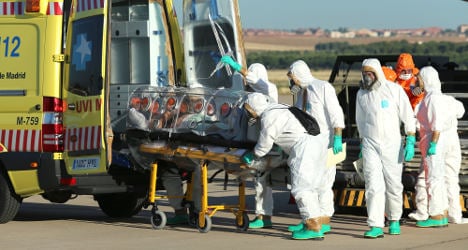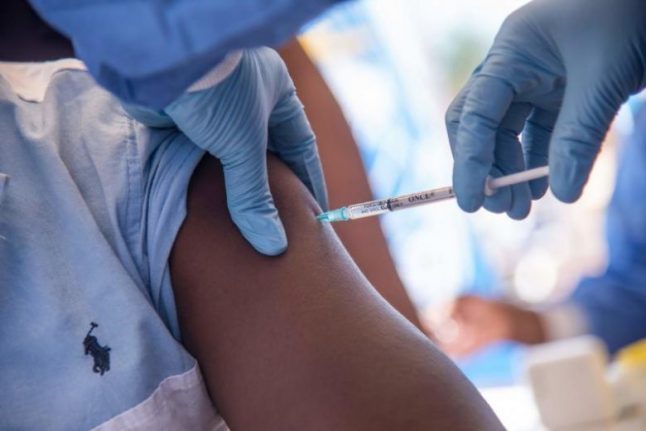Speaking to Spanish TV channel Cuatro, WHO spokesperson Gregory Hartl said that "many" Spanish health workers were well-trained to deal with any possible Ebola cases.
He reassured Spaniards that the WHO and Spain's Ministry of Health, Social Security and Equality were following international protocols to remain in "constant contact".
Referring to the recent repatriation of Ebola-infected priest Miguel Pajares and nun Juliana Bonoha Bohe, who is not infected but has been admitted to hospital as a precaution, he said: "We have seen how the two people from religious orders were correctly received in Spain. "
"We have just started a new phase and we need a little time but in Spain there are many people trained to deal with these cases," he added.
Hartl's comments come after a number of medical professionals slammed Spain's "improvised" preparations for the repatriation of Miguel Pajares.
One medical union told The Local that staff were being given accelerated courses on how to deal with the deadly disease which has a mortality rate of 50 to 90 percent.
Pajares, was one of three people who tested positive for Ebola at the Saint Joseph Hospital in the Liberian capital Monrovia where he worked.
He was brought back to Spain on a medically equipped Spanish military plane, the first patient in the fast-spreading Ebola outbreak to be evacuated to Europe for treatment.
Spanish health authorities said on Thursday the priest was in a stable condition. The hospital is not providing medical updates for the missionary at his request.
The Ebola outbreak in West Africa which has claimed the lives of over 900 people has been declared an "international health emergency" by the WHO.



 Please whitelist us to continue reading.
Please whitelist us to continue reading.
Member comments